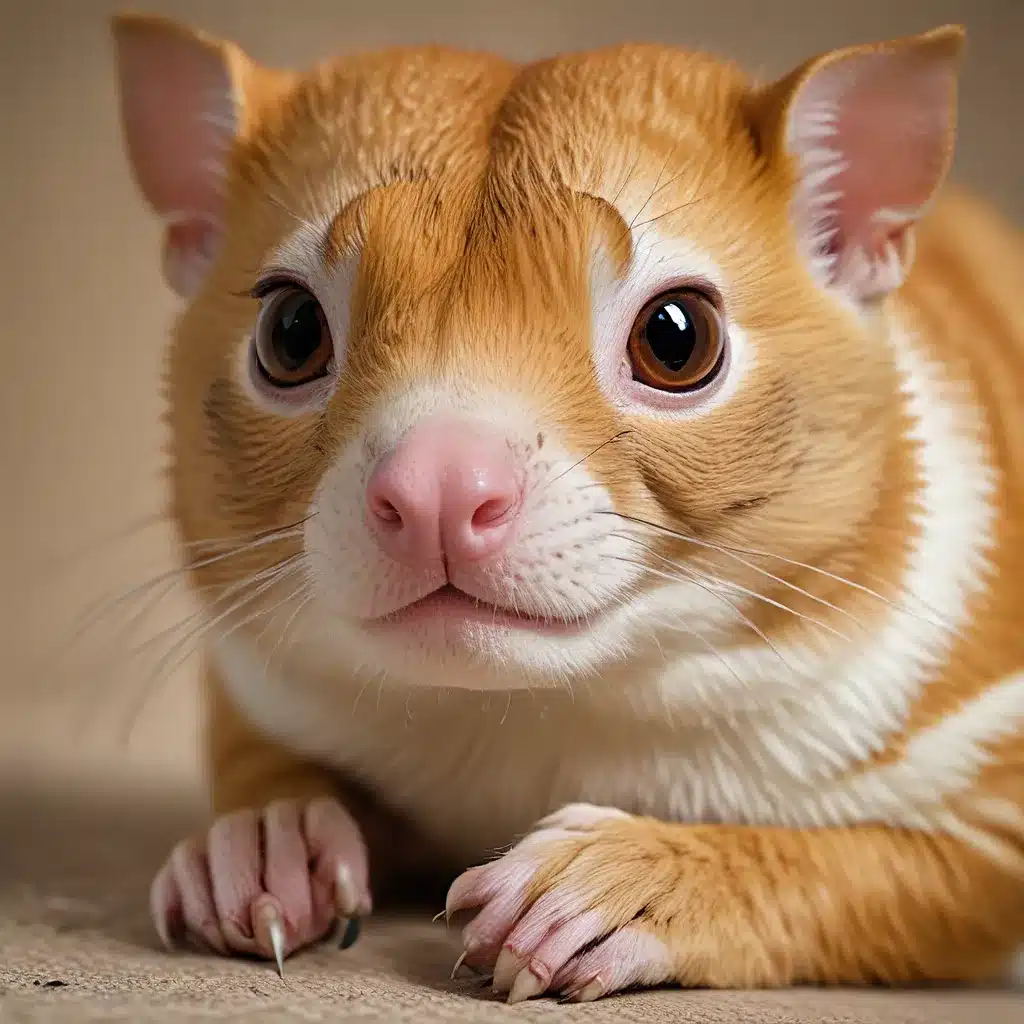
The Thrill and Tribulations of Going Beyond the Norm
Ah, the allure of the exotic! Who doesn’t love the idea of having a one-of-a-kind companion that turns heads and sparks endless fascination? I know I do. After all, what’s the fun in playing it safe when you can embrace the extraordinary? But, my fellow adventurers, let me tell you – owning an exotic pet is not for the faint of heart.
Crash Course in Unconventional Care
Sure, your average tabby or retriever may have their charms, but where’s the excitement in that? Nope, I’m all about the unexpected – the scaly, the furry, the feathered. And let me tell you, caring for these incredible creatures is a whole different ballgame.
Take my friend Samantha, for instance. She decided to dive headfirst into the world of exotic pets with her very own sugar glider. Now, these little guys may look like they belong in a Disney movie, but don’t let the cute factor fool you. Samantha quickly learned that keeping a sugar glider happy and healthy requires a level of dedication that would put a professional circus performer to shame.
Exotic pet species need care every bit as much as dogs and cats, and that often includes specialized medical procedures. Samantha found this out the hard way when her furry friend needed emergency surgery. “I had no idea what I was getting myself into,” she admitted. “But when I saw that little guy struggling, I knew I had to do whatever it took to help him.”
The Vital Importance of Vet Care
And that’s the thing about exotic pets – they’re not just a novelty, they’re living, breathing creatures that require expert care. The clinicians at the UC Davis Veterinary Medical Teaching Hospital know this all too well. They’ve seen it all, from parrots with delicate respiratory issues to ferrets in need of complex dental work.
“Exotic pets can be incredibly rewarding, but they also come with a unique set of challenges,” explains Dr. David Sanchez-Migallon Guzman, the chief of the Companion Exotic Animal Medicine and Surgery Service. “These animals have very specific dietary, housing, and medical needs that simply can’t be met by your average vet clinic.”
The Importance of Doing Your Homework
And that’s why it’s absolutely crucial for exotic pet owners to do their homework. Before you even consider bringing home a scaly, feathered, or furry friend, you need to understand what you’re getting yourself into. What are the unique dietary requirements? How much space do they need? What kind of enrichment and stimulation do they require to thrive?
Believe me, I learned this the hard way when I decided to add a bearded dragon to my family. I thought, “How hard could it be? It’s just a lizard, right?” Boy, was I in for a rude awakening. Turns out, these little guys have incredibly specific temperature and lighting needs, not to mention a diet that puts my own salad habits to shame.
The Importance of Proper Husbandry
And it’s not just the medical side of things that can trip up exotic pet owners. Proper husbandry – the fancy term for how you house, feed, and care for your pet – is absolutely essential. Get it wrong, and you could be looking at a whole host of health issues, from metabolic disorders to behavioral problems.
Take my friend Alex, for example. He was so excited to bring home a pair of chinchillas, but he quickly realized that keeping these delicate creatures happy and healthy was no easy feat. “I had no idea how precise their diet and environment needed to be,” he lamented. “I thought I was doing everything right, but then I started noticing my little guys were looking a bit…off. Turns out, I had the temperature and humidity all wrong, and it was wreaking havoc on their sensitive systems.”
The Importance of Preventative Care
And that’s the thing about exotic pets – they’re masters of disguise when it comes to illness. Many companion exotic pets mask signs of illness completely or show only subtle signs until very late in the disease. That means you’ve got to be hyper-vigilant, constantly on the lookout for even the slightest change in your pet’s behavior or appearance.
“Routine wellness exams and basic diagnostic testing are the foundations to identifying health concerns before illness occurs,” explains Dr. Guzman. “With exotic pets, you can’t afford to wait until something is visibly wrong. You need to be proactive, getting to know your animal’s normal patterns and checking in regularly with a vet who specializes in unconventional companions.”
The Importance of a Supportive Community
But hey, don’t let all of this scare you off! Owning an exotic pet may come with its fair share of challenges, but the rewards are truly unparalleled. Think of the sheer joy of watching your feisty ferret or curious cockatiel explore their world, or the sense of accomplishment when you nail that perfect temperature and humidity for your beloved bearded dragon.
And the best part? You don’t have to navigate this wild journey alone. There’s a whole community of exotic pet enthusiasts out there, eager to share their wisdom, swap stories, and provide the support you need to give your unconventional companion the best life possible. Just head on over to Golden Exotic Pets and you’ll find a wealth of resources, from care guides to expert-led forums.
So, my fellow adventurers, are you ready to take the plunge? The world of exotic pets may be daunting, but with the right preparation, the proper veterinary support, and a whole lot of patience and love, the rewards are truly out of this world.

